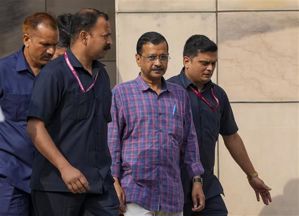Our Correspondent
Phagwara, November 24
The Central Government has been continuously encouraging production of second generation (2G) ethanol from biomass and other agricultural waste. In this context, setting up of 2G bio-refineries will help reduce crop burning by converting agricultural residue to ethanol. This will help in reducing pollution and ensure a cleaner environment. This will also boost the rural economy, create new jobs and provide additional income to farmers.
Keeping in view the same, assistant prof Dr Rohit Rai, Department of Medical Laboratory Sciences, Lovely Professional University (LPU), was selected as the young scientist by the Central Government’s Department of Science and Technology (DST).
Dr Rai was part of the 20-member delegation that represented the country at a scientific conclave among BRICS (Brazil, Russia, India, China and South Africa) held in Rio de Janeiro (Brazil), South America. He led the country on the front of ‘Bio-economy’ and delivered a talk on developing second generation (2G) ethanol as long term two-way sustainable solutions for (i) rapidly depleting crude oil reserves, and (ii) increased poisonous ‘smog’ hazard.
He tried to provide inputs for breaking one of the major bottlenecks in 2G ethanol bio-refineries. Technically speaking, it is enzymatic degradation of agro-residues like, much in news, ‘Parali’. He shared unconventional indigenous approaches designed by him for bio-prospecting novel microbial sources.
He showcased the roadmap to formulate in-house enzyme cocktails for efficient conversion of agro-residues into fermentable sugars, in a cost efficient manner. His work and innovative ideas were applauded by the delegates from other counterparts of BRICS community.
Through this global conclave, Dr Rohit has established new links at Scientists’ as well as Ministerial level in all of the BRICS countries that could be beneficial in making the future collaborations with these countries. It is a indeed a prodigious way to combat climate change by lowering the amount of CO2 emitted to the atmosphere. ‘Ethanol’ is a biofuel, and therefore emits less CO2. The rapid depletion of coal, gas and crude oil reservoirs has enforced the study of alternative fuel such types are biofuels, bioethanol. Ethanol can be used as a pure fuel or blended with gasoline used for vehicles.
Illustrative, Ethanol is a domestically produced alternative fuel most commonly made from corn, agricultural waste and cellulosic fibres such as crops and wood.



























